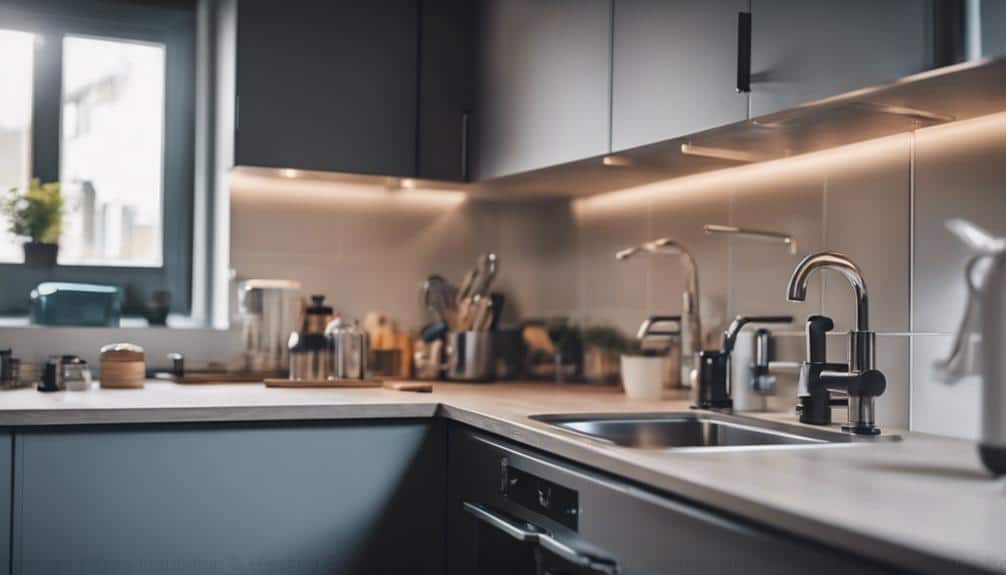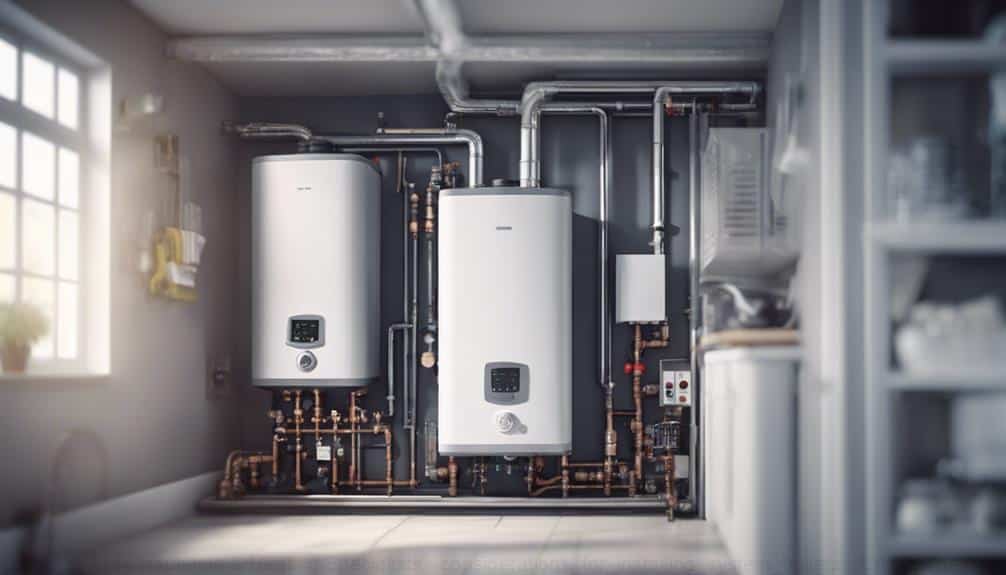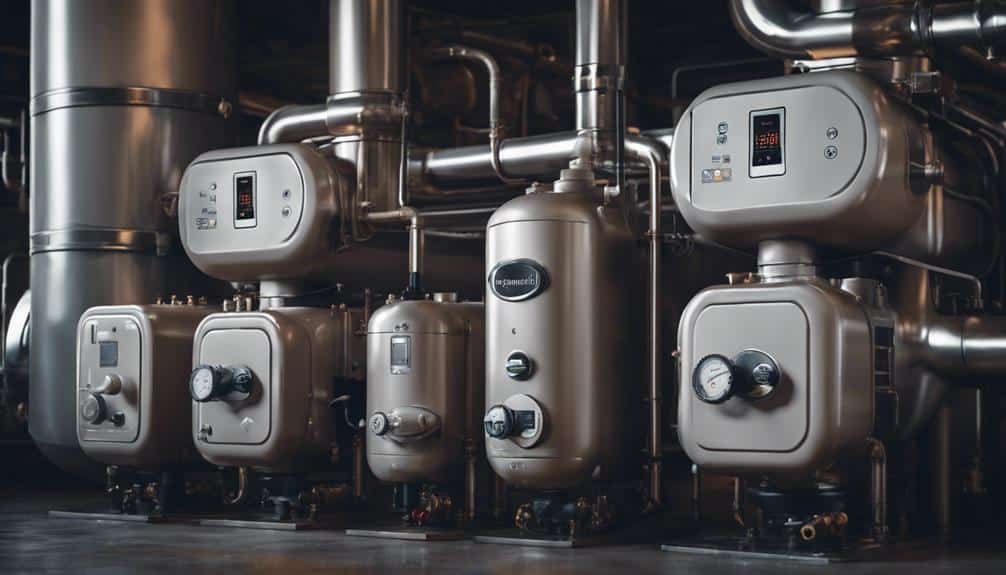Selecting the appropriate boiler for your residence is crucial. Combi boilers are ideal for small spaces but may diminish water flow from multiple outlets. Heat-only boilers are suitable for properties with high hot water demands, necessitating a storage cylinder and cold water tank.
System boilers provide efficient heating but depend on mains pressure for water flow. Evaluate your hot water needs and compare efficiency options like combi, heat-only, and system boilers. Understanding installation requirements and maintenance expenses will aid in making an informed decision.
Each boiler type has distinct advantages and disadvantages, so choose wisely based on your specific requirements.
Table of Contents
ToggleCombi Boilers: Pros and Cons

Combi boilers are favored by many homeowners for their efficiency and convenience. These boilers use a heat exchanger to provide instant hot water on demand, eliminating the need for a separate hot water storage tank.
With their compact size, combi boilers are ideal for smaller properties with limited space. However, they may not be suitable for larger properties with high hot water demand, as they can experience reduced water flow rates when multiple outlets are used.
Heat-Only Boilers: Features and Suitability
For properties with multiple bathrooms and high hot water demands, heat-only boilers are suitable. These boilers include a boiler, hot water storage cylinder, and cold water tank. They provide hot water directly to the central heating system.
It's essential to ensure the boiler can efficiently meet your hot water demands. The space required for the cylinder and tank should be considered for installation suitability in your home.
System Boilers: Advantages and Considerations

System boilers offer energy-efficient heating for both water and radiators, making them cost-effective. Their straightforward installation process saves time, thanks to internal components.
However, they require a hot water storage cylinder, and their hot water flow rate depends on mains pressure. Regular maintenance is essential for optimal performance and longevity.
Boiler Types: Key Considerations
When choosing a boiler for your home, consider your hot water needs and the efficiency of available types. Factors to weigh include energy efficiency, installation demands, maintenance expenses, and environmental impact.
Key points to guide your decision are energy efficiency comparisons, installation requirements, maintenance costs, and environmental impact.
Selecting the Right Boiler for You

Understanding your hot water needs and efficiency is crucial when selecting a boiler for your home. Comparing energy efficiency and installation requirements is essential.
Combi boilers are highly efficient but may not be suitable for properties with high hot water demand. Heat-only boilers are ideal for properties with multiple bathrooms.
System boilers are suitable for properties with high hot water demand but may not work well in low water pressure areas. Consider costs and maintenance needs to choose the best boiler for your home for long-term satisfaction.
Frequently Asked Questions
Can a Combi Boiler Be Installed in a Property With Low Mains Water Pressure?
Installing a combi boiler in a property with low mains water pressure may necessitate a booster pump. Combi boilers, although suitable for showers, have specific water pressure requirements that can lead to decreased flow rates when used concurrently.
What Is the Average Lifespan of a Heat-Only Boiler?
The lifespan of a boiler ranges from 10 to 15 years. Regular maintenance can extend its longevity. Common issues include pump failures and valve problems. Energy efficiency, replacement costs, and maintenance schedule should be considered when planning for a replacement.
Are System Boilers Compatible With Renewable Energy Sources Like Solar Panels?
System boilers may have limitations with solar panel integration due to their reliance on mains pressure. While they are efficient, sustainability concerns may arise. When selecting a boiler for your home, prioritize compatibility with renewable energy sources to ensure optimal performance and eco-friendliness.
Do All Boiler Types Require Regular Servicing and Maintenance?
Efficient boiler operation is crucial for managing energy consumption. All boiler types need regular maintenance for optimal performance and longevity. Neglecting maintenance can result in inefficiencies, breakdowns, and increased energy costs. Regular servicing is paramount for ensuring efficiency and preventing costly issues.
Can a Boiler's Power Output Be Adjusted to Suit Changing Heating Demands?
Boilers have a fixed power output that cannot be adjusted to match varying heating demands. Despite this limitation, most models prioritize energy efficiency, leading to reduced utility bills. It is crucial to select a boiler that aligns with your specific heating requirements to maximize its benefits.



